Ianadmin
Pulpwood costs have fallen substantially worldwide
Pulpwood costs have fallen substantially worldwide with the softwood and hardwood pulpwood price indices in the 4Q/15 being at their lowest levels in over ten years, reports the Wood Resource Quarterly
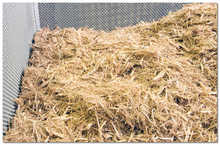 The largest cost component when manufacturing wood pulp is the cost of wood fiber. This cost has declined substantially in US dollar terms the past few years with the Global Price Indices being down almost ten percent in 12 months, according to the Wood Resource Quarterly.
The largest cost component when manufacturing wood pulp is the cost of wood fiber. This cost has declined substantially in US dollar terms the past few years with the Global Price Indices being down almost ten percent in 12 months, according to the Wood Resource Quarterly.
Wood cost is the factor that often determines the competitiveness of a pulp manufacturing plant or region, because it is the largest cost component when producing wood pulp. During the past few years, this cost has varied between 45% and 70% of the total cash cost, depending on product grade and the costs of other components such as chemicals, energy and labor.
Hardwood fiber prices continued to fall in most of the major pulp-producing countries in the world in the 4Q/15. The biggest declines were seen in Brazil, Chile, Russia, France, Germany and Indonesia. In most regions, the price adjustments occurred in both in the local currencies and in US dollar terms. The hardwood price index (HFPI) fell over two percent from the 3Q/15 to a level that was almost 10% lower than in the 4Q/14.
Russian pulp mills have substantially lower wood fiber costs than most competitors around the world thanks to the weak Ruble. Prices for hardwood pulplogs were less than half of the average prices in Brazil and Chile in the 4Q/15, according to the latest issue of the Wood Resource Quarterly. In US dollar terms, current price levels are also half of what they were two years ago. Pulplog prices throughout Europe have also fallen quite substantially the past few years but remain among the highest in the world.
With the exception of the US South and New Zealand, softwood fiber prices were also down throughout the world in the 4Q/15. The declines ranged between two to ten percent from the previous quarter. The softwood price index (SFPI) was US$88.46/odmt, a reduction of 1.4% from the previous quarter and 7.5% lower than the same quarter in 2014. Both the SFPI and HFPI are currently at the lowest levels in over ten years.
Note. The Global Wood Fiber Price Index is a weighted average of delivered wood fiber prices for the pulp industry in all regions tracked by the publication Wood Resource Quarterly. These regions together account for 85-90% of the world’s wood-based pulp production capacity. The price is based on current quarter average prices, and country/regional wood fiber consumption data. The global average price for softwood and hardwood is calculated in nominal US$ per oven-dried metric ton of wood fiber.
Global pulpwood and timber market reporting is included in the 52-page quarterly publication Wood Resource Quarterly (WRQ). The report, which was established in 1988 and has subscribers in over 30 countries, tracks sawlog, pulpwood, lumber and pellet prices, trade and market developments in most key regions around the world. To subscribe to the WRQ, please go to www.woodprices.com
Verso Announces Closure of Wickliffe, Kentucky Paper Mill
Verso Corporation (OTCPink: VRSZQ) have just announced the closure of its paper mill located in Wickliffe, Kentucky. The mill has been idle since November 2015, the result of a continuing and accelerated decline in demand for the company's coated paper products and a significant influx of imports driven by the strength of the U.S. dollar relative to foreign currencies.
 "After an exhaustive, but ultimately unsuccessful effort to find a buyer of our Wickliffe Mill, Verso has made the difficult decision to close the facility," said Verso President and CEO David J. Paterson. "A handful of potential buyers expressed interest in purchasing and continuing to operate the mill, but either offered an unrealistically low purchase price or ultimately chose not to pursue the purchase. The decision to close the Wickliffe Mill is aligned with Verso's long-held commitment to balance the supply of our products with our customers' demand for them, and is not related to the company's Chapter 11 proceedings," he said.
"After an exhaustive, but ultimately unsuccessful effort to find a buyer of our Wickliffe Mill, Verso has made the difficult decision to close the facility," said Verso President and CEO David J. Paterson. "A handful of potential buyers expressed interest in purchasing and continuing to operate the mill, but either offered an unrealistically low purchase price or ultimately chose not to pursue the purchase. The decision to close the Wickliffe Mill is aligned with Verso's long-held commitment to balance the supply of our products with our customers' demand for them, and is not related to the company's Chapter 11 proceedings," he said.
Approximately 310 Wickliffe Mill employees were furloughed when the mill was idled in November 2015, while a smaller group remained at the mill to maintain critical systems during the marketing process. Both groups of employees were notified in accordance with the Worker Adjustment and Retraining Notification (WARN) Act that their last day of employment with Verso is expected to be June 4. Represented employees will receive a severance allowance as outlined in a memorandum of agreement negotiated prior to the idling of the mill. Salaried employees will receive a severance allowance in accordance with Verso's established severance policy. Verso will continue to work closely with state and local officials to help Wickliffe Mill employees take full advantage of all available support resources.
"We know that the closure of the Wickliffe Mill will be a challenging and emotional experience for our employees and their families," Paterson said. "Verso is committed to treating them with fairness, dignity and respect during this difficult time. The closure of the mill is in no way a reflection on our Wickliffe team members, and I want to thank each and every one of them for their hard work and dedicated service to Verso and our customers."
In compliance with the WARN Act, Verso notified the state of Kentucky of the decision to close the mill. Notwithstanding the WARN notice, Verso also told state officials that although it was unable to sell the facility as an operating paper mill, it would welcome any assistance the state might provide in identifying a buyer that would continue to operate the facility, possibly for non-papermaking uses.
Shortly after the Wickliffe Mill was idled, Verso successfully qualified paper grades formerly manufactured there for production at other mills in the company's highly flexible manufacturing system, so the mill closure will have virtually no impact on Verso's customers. Verso will proceed immediately with all actions necessary to close the mill in a safe and environmentally responsible manner, with the shutdown expected to be complete by July 1. The final disposition of the mill is yet to be determined.
SOURCE Verso Corporation
For further information: Media, Kathi Rowzie, Vice President, Communications and Public Affairs, 901-369-5800, This email address is being protected from spambots. You need JavaScript enabled to view it.; Investors, 901-369-4128, This email address is being protected from spambots. You need JavaScript enabled to view it.
JAMES CROPPER IS A SUSTAINABILITY CHAMPION AT FPA AWARDS
James Cropper has won the Foodservice Packaging Association (FPA) Corporate Social Responsibility Award 2016.
The British master papermaker received the accolade for its support of the Burneside Community Energy (BCE) project – a social initiative to enable local residents to benefit from investment in renewable energy.
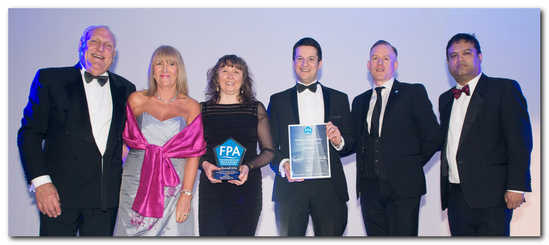
James Cropper Plc provided space for the installation of a 250KW Solar PV Array on the roof of its Burneside mill to help generate clean, green electricity in a way that doesn’t compromise the special ecology or superb landscape of Burneside and Cumbria.
The project, which launched in October 2015, is estimated to generate 193,000 kWh of renewable electricity per annum – enough to offset the energy requirements of James Cropper’s specialist laminating and technical coating facility and reduce carbon dioxide emissions by 1.91 million kilograms over the next 20 years.
As well as the positive impact on the environment, the scheme will deliver a five per cent annual dividend to investors with an additional £50,000 provided for community projects.
The profits will be generated through the government’s feed in tariff and from the sale of electricity to James Cropper Plc as part of the manufacturer’s long term commitment to supporting the community of Burneside, and to reducing its carbon dioxide emissions.
Dave Watson, COO at James Cropper, said: “The Burneside Community Energy scheme rewards the parish and its investors with ethical energy and financial benefits, while helping to reduce our dependency on dwindling fossil fuels. The project brings environmental and social benefits to the community while providing a positive, sustainable legacy for future generations in Burneside.”
The FPA Awards were held at The Grand Hotel Brighton on 10 March with 460 FPA members in attendance. The awards are judged by an independent panel and are a highly respected accolade within the food industry.
For more information about James Cropper, visit www.jamescropper.com
ABOUT JAMES CROPPER & TECHNICAL FIBRE PRODUCTS (TFP):
James Cropper are prestige paper innovators based in the English Lake District, supplying distinct, custom-made paper products to many of the world’s leading luxury brands, art galleries and designers. Celebrating 170 years of high quality paper production in 2015, the business has been carefully stewarded and nurtured by six generations of the Cropper family and is renowned globally for individual expertise in colour, dedicated responses to the most challenging custom projects and award-winning commitment to the highest standards of sustainability.
A network of global sales and production facilities from Europe to the Far East provides local customer service to international clients, while its historic base in the village of Burneside retains nearly two centuries worth of papermaking expertise.
As well as paper products, James Cropper PLC also incorporates Technical Fibre Products (TFP), manufacturers of non-woven materials from carbon, glass and polymer fibres, which play a key part in production of composites in the automotive, energy and aerospace sectors. For further information visit: www.jamescropper.com and www.tfpglobal.com
Grupo Gondi and WestRock Complete Joint Venture
Companies combine operations to form leading paper and packaging company in Mexico
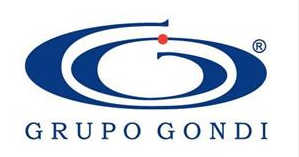 Grupo Gondi and WestRock (NYSE:WRK) have just announced that they have completed the formation of a joint venture combining their paper and packaging operations in Mexico. The combination was recently approved by Mexico’s Antitrust Authority, the Comisión Federal de Competencia Económica (COFECE), and the companies will begin operating in Mexico as a single entity immediately.
Grupo Gondi and WestRock (NYSE:WRK) have just announced that they have completed the formation of a joint venture combining their paper and packaging operations in Mexico. The combination was recently approved by Mexico’s Antitrust Authority, the Comisión Federal de Competencia Económica (COFECE), and the companies will begin operating in Mexico as a single entity immediately.
About Grupo Gondi
Grupo Gondi is one of the leading paper packaging suppliers in the Mexican market, with 13 plants in Mexico, supplying innovative paper packaging solutions to over 750 customers. Learn more about Grupo Gondi at www.grupogondi.com.
About WestRock
WestRock Company (NYSE:WRK) aspires to be the premier partner and unrivaled provider of paper and packaging solutions in consumer and corrugated markets. WestRock’s 41,000 team members support customers around the world from more than 250 operating and business locations spanning North America, South America, Europe and Asia. Learn more at westrock.com.
Grupo Gondi Contacts
Francisco Rodriguez
Chief Financial Officer
52 55 52496020
This email address is being protected from spambots. You need JavaScript enabled to view it.
Mauricio Monjardin
Commercial Director
52 55 52496025
This email address is being protected from spambots. You need JavaScript enabled to view it.
WestRock Contacts
John Stakel
Senior Vice President, Treasurer
678-291-7901
This email address is being protected from spambots. You need JavaScript enabled to view it.
New organisation at Innventia
On 4 April, 2016, Innventia launched a new organisation. The mobilisation is being undertaken so that we are better equipped for the opportunities and challenges that we will be encountering in the bioeconomy of the future.
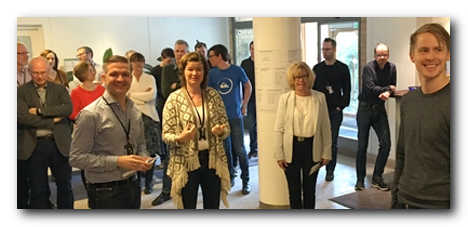
The operation is being organised in two new business areas, Biorefinery & Biobased Materials under the direction of Catharina Ottestam and Papermaking & Packaging, under Marco Lucisano. At the same time a function is being established with specific responsibility for bioeconomic strategy through Peter Axegård.
Based on Innventia's well renowned competence in cellulose science, the Biorefinery & Biobased Materials business area links together all the skills required for producing substances that can be put together into functional materials and chemicals. This can involve new markets and new applications which will contribute to a growing bioeconomy.
Within the Papermaking & Packaging business area we have now linked together the value chain from material, via production technology to application and use. It also fits well with the growing need for demonstration to enable up-scaling and industrial implementation.
"The new organisation will give us better opportunities to meet the challenges of the industry. It also harmonises with the strategies for a stronger Swedish institute sector through RISE Research Institutes of Sweden," says Birgitta Sundblad, President of Innventia.
For more information, please contact:
Birgitta Sundblad, telephone +46 (0)768-767325, This email address is being protected from spambots. You need JavaScript enabled to view it.
Stora Enso has completed the divestment of Arapoti Mill
Stora Enso has completed the earlier announced divestment of its ownership in the Arapoti Mill in Brazil. The divestment supports Stora Enso's transformation into a renewable materials growth company.
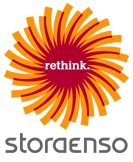 The divestment of Stora Enso’s entire 80% shareholding in the Arapoti magazine paper mill to Papeles Bio Bio, a Chilean paper producer, has been completed. The divestment plan was announced on 31 December 2015.
The divestment of Stora Enso’s entire 80% shareholding in the Arapoti magazine paper mill to Papeles Bio Bio, a Chilean paper producer, has been completed. The divestment plan was announced on 31 December 2015.
The consideration for the divestment of the shares is approximately EUR 17 million. The loss on disposal amounts to approximately EUR 59 million of which EUR 31 million was recorded as a non-recurring item in Stora Enso’s fourth quarter 2015 results. The remaining approximately EUR 28 million is a cumulative translation adjustment loss, which will be recorded as a negative non-recurring item on operating profit in Stora Enso’s first quarter 2016 results, as announced earlier.
The transaction reduces Stora Enso’s net debt by approximately EUR 12 million. Based on 2015 annual figures, the transaction decreases Stora Enso’s sales by approximately EUR 100 million.
Arapoti Mill is the only producer of coated magazine paper (LWC) in South America. The majority of its production is sold to the domestic market and the rest to other Latin American countries. The mill has an annual production capacity of 185 000 tonnes of LWC, and it employs 320 people.
Stora Enso is a leading provider of renewable solutions in packaging, biomaterials, wood and paper on global markets. Our aim is to replace non-renewable materials by innovating and developing new products and services based on wood and other renewable materials. We employ some 26 000 people in more than 35 countries, and our sales in 2015 were EUR 10.0 billion. Stora Enso shares are listed on Nasdaq Helsinki (STEAV, STERV) and Nasdaq Stockholm (STE A, STE R). In addition, the shares are traded in the USA as ADRs (SEOAY) on the International OTCQX over-the-counter market. storaenso.com
Clearwater Paper Adds Two New Board Members
Clearwater Paper Corporation (NYSE:CLW) have just announced that John P. O’Donnell and Alexander Toeldte have been appointed to the company’s board of directors, effective immediately.
“Their proven leadership abilities and experience as well as their knowledge of the paper industry will be invaluable as we continue to build on Clearwater Paper’s successful track record.”
 “We are excited to welcome John and Alex to our board and look forward to their perspectives and contributions,” said Boh A. Dickey, chairman of the board. “Their proven leadership abilities and experience as well as their knowledge of the paper industry will be invaluable as we continue to build on Clearwater Paper’s successful track record.”
“We are excited to welcome John and Alex to our board and look forward to their perspectives and contributions,” said Boh A. Dickey, chairman of the board. “Their proven leadership abilities and experience as well as their knowledge of the paper industry will be invaluable as we continue to build on Clearwater Paper’s successful track record.”
Mr. O’Donnell currently serves as the president and chief executive officer and a director of Neenah Paper, Inc. (NYSE:NP), a global specialty materials company. Prior to this, he served as Neenah Paper’s senior vice president, chief operating officer, and as president of the fine paper business. Mr. O’Donnell was employed by Georgia-Pacific Corporation for more than 20 years, serving in various capacities, including president of the North American commercial tissue business.
Mr. Toeldte is currently an operating director at Paine & Partners, LLC, a private equity firm. Prior to this, he served as the president, chief executive officer and a director of Boise Inc., and as an executive vice president at Boise Cascade LLC. Mr. Toeldte also served as an executive vice president of Fonterra Co-operative Group, chief executive of Fonterra Enterprises, and chief executive officer of Fletcher Challenge Building and Fletcher Challenge Paper. In addition, Mr. Toeldte served as chairman of the board of directors of the American Forest & Paper Association in 2012, and was a partner at McKinsey & Company, and served as head of its pulp and paper practice. Currently he serves as a director of Xerium Technologies, Inc. (NYSE:XRM), a global provider of industrial consumable products and services.
Mr. O’Donnell has been appointed to the class of directors whose term of office will expire at the 2017 annual meeting, when it is expected he will be nominated for election to a three-year term. Mr. Toeldte has been appointed to the class of directors whose term of office will expire at the 2018 annual meeting, when it is expected he will be nominated for election to a three-year term. With these additions, Clearwater Paper’s board now consists of nine directors, eight of whom meet New York Stock Exchange standards for independence.
ABOUT CLEARWATER PAPER
Clearwater Paper manufactures quality consumer tissue, away-from-home tissue, parent roll tissue, bleached paperboard and pulp at manufacturing locations across the nation. The company is a premier supplier of private label tissue to major retailers and wholesale distributors, including grocery, drug, mass merchants and discount stores. In addition, the company produces bleached paperboard used by quality-conscious printers and packaging converters. Clearwater Paper’s employees build shareholder value by developing strong customer relationships through quality and service.
Successful start-up of the Toscotec delivered TT DOES package at ISMA 2000 S.L., in La Torre de Claramunt mill, Barcelona, Spain.
The ISMA 2000 PM#1 has been started up smoothly according to the time schedule, after a major dry-end rebuild delivered by TOSCOTEC. The delivery agreement of the new drying technology for the tissue line was signed by ISMA 2000 S.L. and Toscotec S.p.A. in June 2015.

"Toscotec's commitment was to deliver to the spanish producer the latest edge-technologies in tissue drying to create a further reference in rebuilding projects to increase efficiency and cut operating costs. With great satisfaction we announce that the rebuild has allowed ISMA 2000 S.L. to increase the productivity of the tissue machine of 30 %.” said Davide Mainardi, Sales & Customer Care Director of Toscotec S.p.A..
The delivery included a Steel Yankee Dryer TT SYD-3600MM provided with Toscotec patented solution for head insulation, a yankee steam & condensate system and a new hood, TT Milltech-SMYH Hood type, with high level of heat recovery.
Fernando Luz , ISMA General Manager, said : “To invest in TT DOES (Drying Optimization for Energy Saving) package has been the right move to continue our project, based on an intensive energy-saving concept, already initiated in the phase of pulp treatment. Today we are able to produce 100% recycled hygienic tissue by using complex raw material with high quality fibers and less specific energy consumption input”.
Cartonboard industry looks east for five-year growth
Asia-Pacific region to account for almost two thirds of demand for folding cartons by 2018
New data released by Asia Pulp & Paper Group (APP) identifies the Asian market as critical for the growth of the cartonboard industry, driving demand for both folding cartons (e.g. folding boxboard) and liquid cartons (e.g. milk cartons).
 According to the findings from the report, “Paper based packaging trends to 2019”, the Asia-Pacific region will increase its share of global volume demand for folding cartons from 56% in 2013 to more than 63% in 2018. The prominence of the region will also be compounded by a wider global increase in consumption of folding cartons from 47 million tonnes in 2013 to 63 million tonnes in 2018.
According to the findings from the report, “Paper based packaging trends to 2019”, the Asia-Pacific region will increase its share of global volume demand for folding cartons from 56% in 2013 to more than 63% in 2018. The prominence of the region will also be compounded by a wider global increase in consumption of folding cartons from 47 million tonnes in 2013 to 63 million tonnes in 2018.
Asian growth is expected to significantly surpass the global average in a number of sectors. Asia will outpace the worldwide increase in the confectionary sector by 41%, the preserved foods sector by 29% and the soft drinks sector by 35%.
This is forecast to be largely at the expense of developed markets, with the EMEA share of demand falling from 25% to 21% and the Americas declining from 19% to 16% across 2013 to 2018.
The report identifies a number of drivers of demand in Asia which account for the growing importance of the region for the cartonboard industry:
- Diversification of consumption patterns – Increasing numbers of western and international products are being consumed by Chinese and other Asian consumers as they travel more and experience western food and other products, driving cartonboard consumption growth.
- Shift from informal to formal markets - The shift from ‘informal’ ‘unpackaged’ to ‘formal’ ‘industrially packaged’ consumption will drive long-term growth in liquid cartonboard and folding carton demand across food and beverage areas. For example, currently the majority of the milk market in India (world’s largest milk market) is mainly unpackaged, and a growing shift to packaged consumption is having a major impact on liquid cartonboard material demand.
- Single-serve packs – An increasing number of single-person households coupled with a growing demand for convenience, has driven demand for smaller packs, which involve more packaging than the larger packs they replace. The single-slice pizza box has become increasingly popular in Asia and particularly in major cities such as Shanghai.
Lee Henderson, Director of European Sustainability and Stakeholder Outreach at Asia Pulp and Paper, said:
“We are seeing a global shift in cartonboard demand, which will have implications across the industry. The prominence of the Asian region will re-focus international supply chains, and manufacturers will need to respond quickly to capitalise on the emerging markets. The middle classes in Asia are increasingly becoming a global force and, if manufacturers hope to be internationally competitive in five years’ time, then they will need to ensure that they are positioned to serve the Asian markets.”
Dr Graham Moore, Strategic Consultant, Smithers Pira, said:
“With cartonboard use covering a wide range of end use applications, its overall demand is linked with prevailing economic conditions. In the developed economies, cartonboard demand has been flat, but the slowly improving economy should lead to better local demand and a growing export market in the near future. In contrast, in the developing economies of Asia, the rise in overall incomes and expanding middle classes is resulting in a surging demand for a range of products packaged in cartonboard. Such demand will continue to stimulate increased consumption of the grade.”
About the research
Established in 1930, Smithers Pira is the worldwide authority on the Packaging, Print and Paper supply chains. This White Paper was put together based on extensive desk and primary research, and written up by consultants with in-depth knowledge of the paperboard and packaging industries. Interviews were conducted across the value chain to supplement existing data held on the markets and technologies in these core industries. Smithers Pira tracks the market and publishes more than 25 market reports and multi-client studies every year. The forecasts were compiled using robust methodologies that have been developed over many decades, and are used and trusted by Smithers Pira’s core customer base of raw material suppliers, machinery suppliers, printers, packaging converters, brand owners and other end-users.
About Asia Pulp & Paper
Asia Pulp & Paper Group (APP) is a trade name for a group of pulp and paper manufacturing companies in Indonesia and China. APP is responsible for delivering quality products to meet the growing global demand for tissue, packaging and paper. On any given day, our products find their way into the hands of consumers in various branded forms from all over the world.
Started in 1972 with Tjiwi Kimia producing caustic soda, now we run operations across Indonesia and China with an annual combined pulp, paper, packaging product and converting capacity of over 19 million tons per annum. Today, APP markets its products in more than 120 countries across six continents.
Over the years, we have expanded our operations significantly through the acquisition and expansion of several of our pulp and paper mills. It’s our commitment to customer satisfaction that enables us to grow our share in paper sales worldwide and broaden our presence through offices in many countries. We believe ‘tradition and modernity go hand in hand’ which means we value long term relationships as part of our Eastern traditions, while we also are eager to embrace the modern values of innovation and efficiency.
Maintaining the integrity of our supply chain is also crucial to APP’s operations as well as our commitment to our Sustainability Roadmap Vision 2020. Learn more about APP’s path to operational excellence by reading our Sustainability Reports and Forest Conservation Policy.
A.Celli Paper: Sofidel chooses the Lucca company for its UK plant.
The Italian Group, famous in Italy above all for its Regina brand, purchases a latest-generation tissue rewinder from the Porcari-based company. The machine is to be delivered to Sofidel UK, confirming full trust in A.Celli technology.
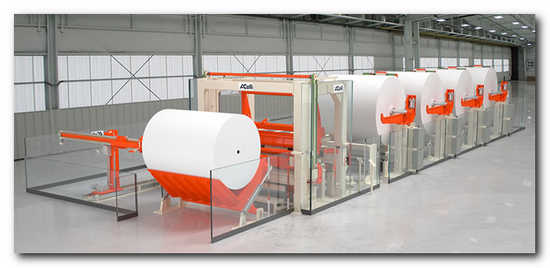
Sofidel, a world leader in the tissue production market for hygienic and domestic use with brands famous throughout Europe and present in seven states in the USA, has recently signed an order for a tissue rewinder from A.Celli Paper in Lucca, Italy.
The machine, a Mod. 865 shafted in a 3400-mm format, will be housed in Sofidel UK's Lancaster plant. Delivery is scheduled for the summer (July 2016).
Yet another confirmation for A.Celli technology, always capable of meeting the many different customer demands, answering the many production variables with flexibility and promptness.
Sofidel Group
Sofidel Group was founded in 1966 and is today one of the world leaders in the tissue paper production market for hygienic and domestic use: toilet paper, napkins, kitchen paper, handkerchiefs and tissues). Its best known brand, available in several countries, is Regina, which stands alongside other prestigious brands. From its headquarters in Porcari (Lucca), Sofidel coordinates the activities of 17 companies throughout Europe and the United States, which produce more than one million tonnes of paper each year and provide more than 5500 people with employment. The Group's daily business includes the creation of value based on a profound sense of respect for the world we live in. Because for Sofidel corporate social responsibility is an essential tool for promoting long-lasting and respectful development of environmental equilibrium and people's needs, today and in the future.
